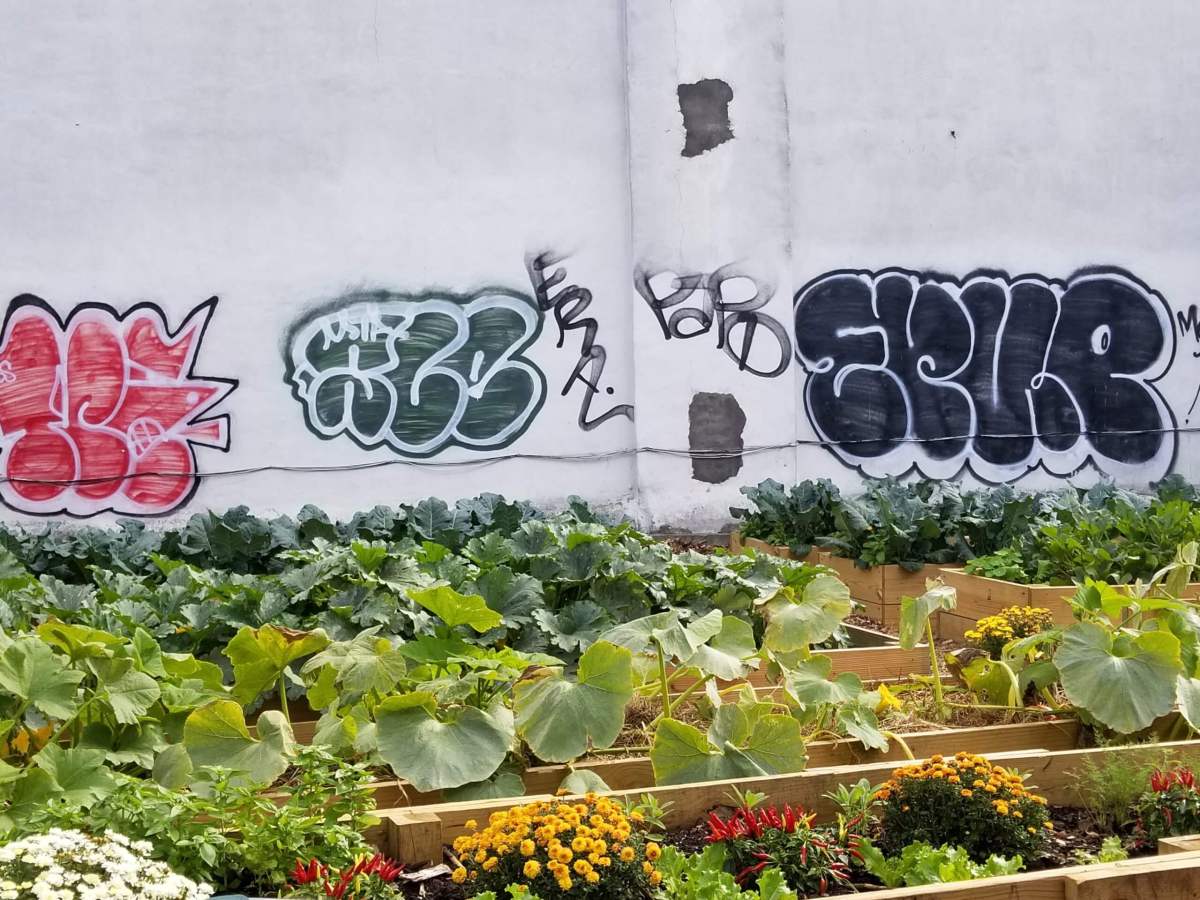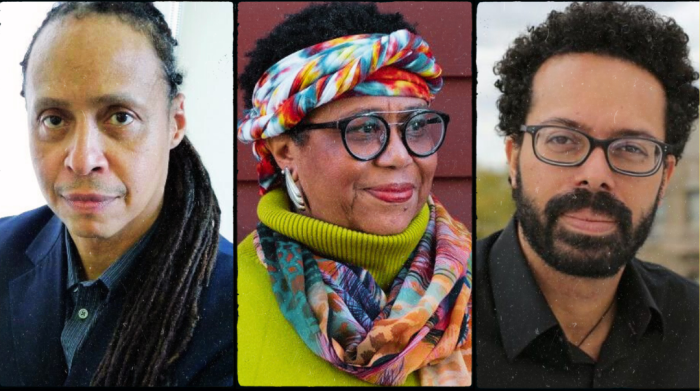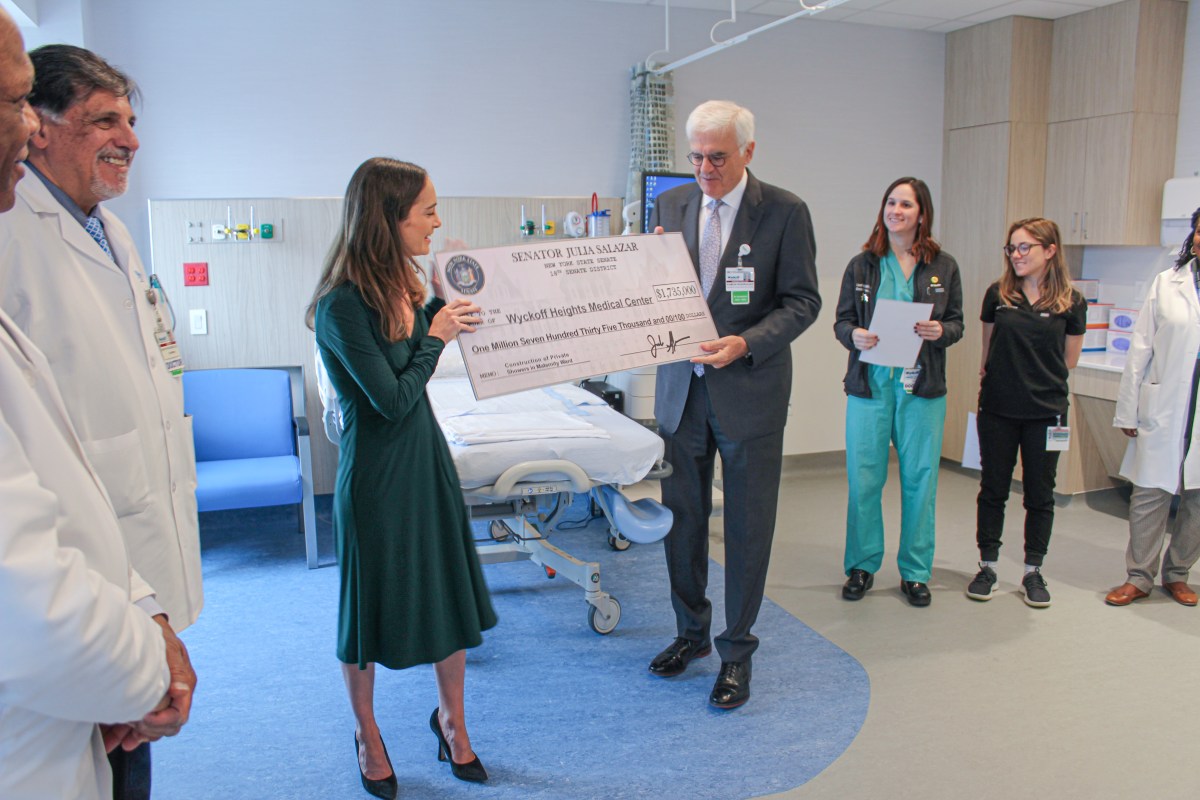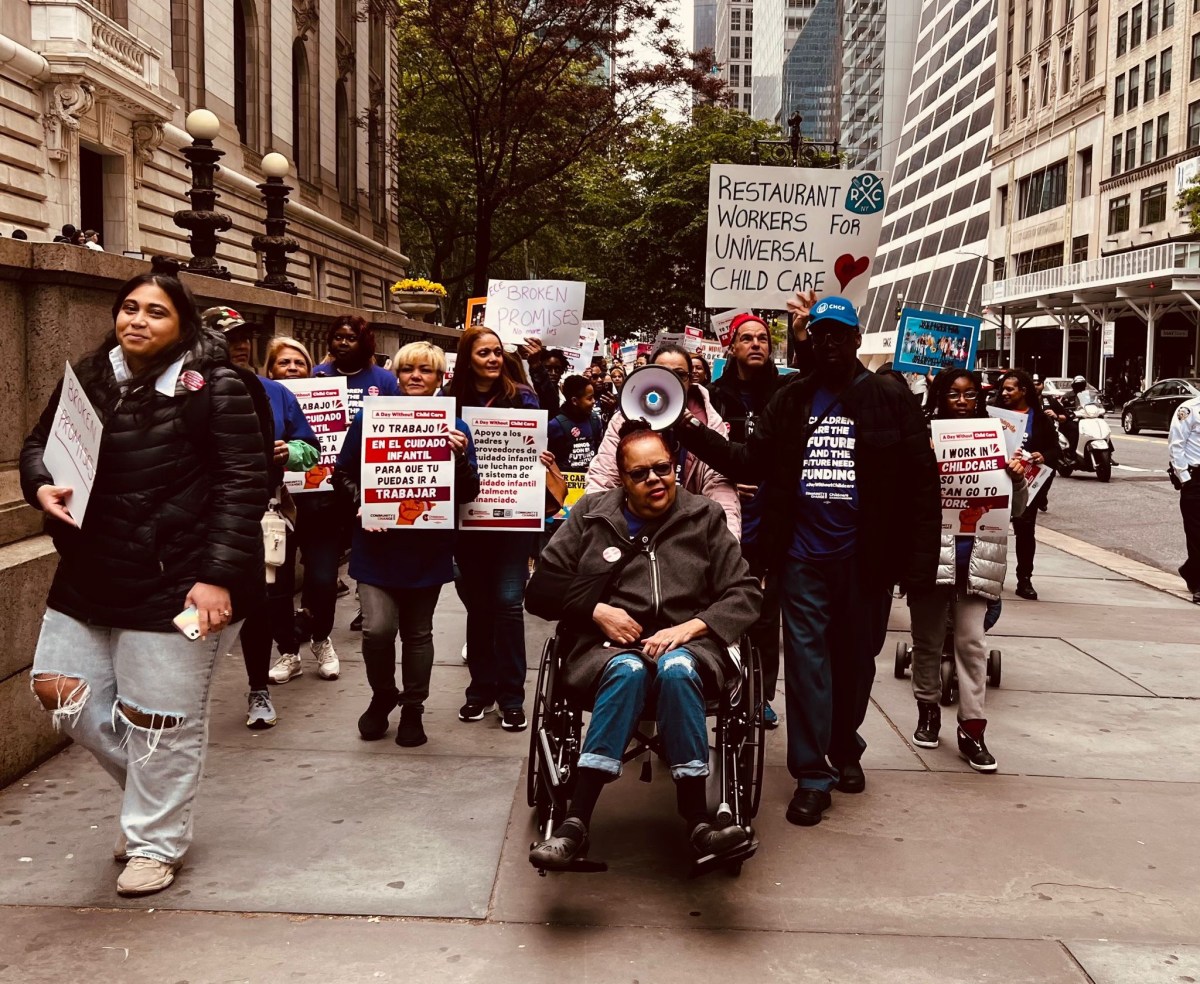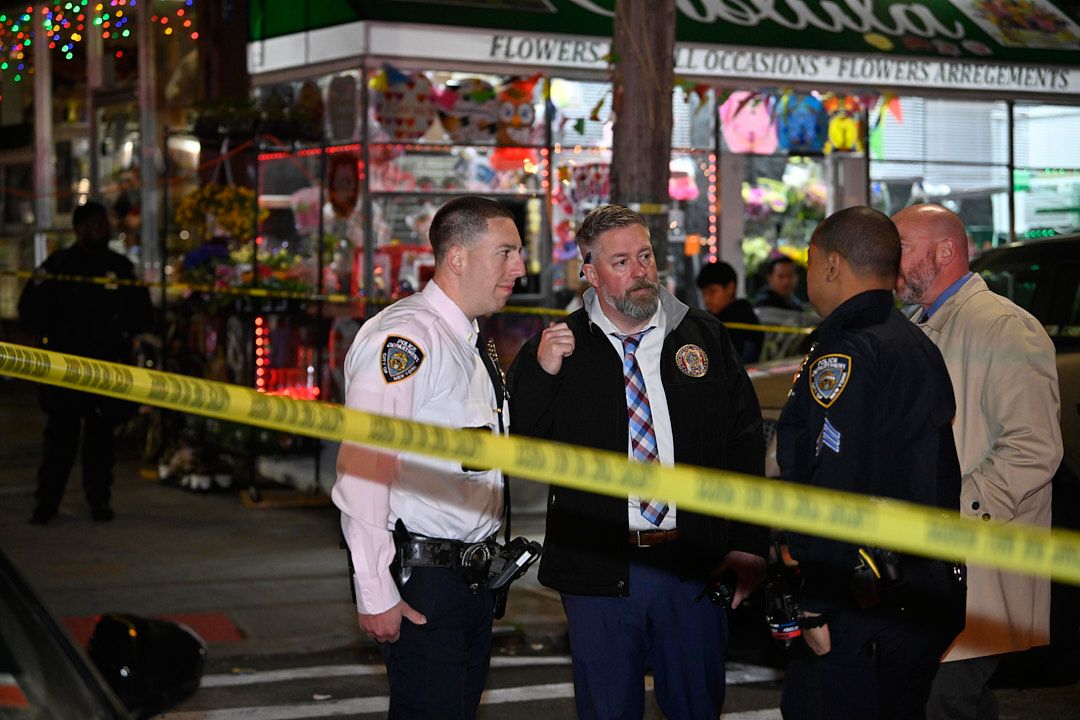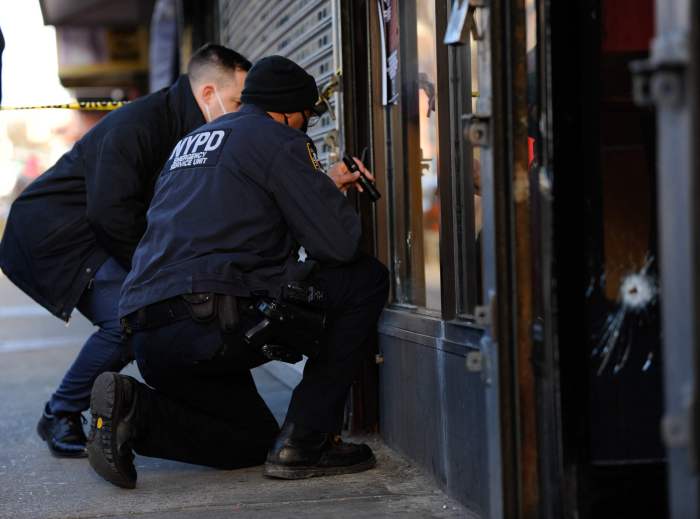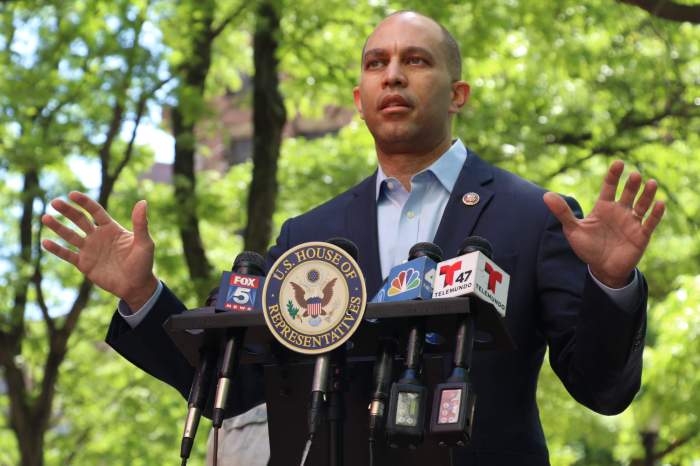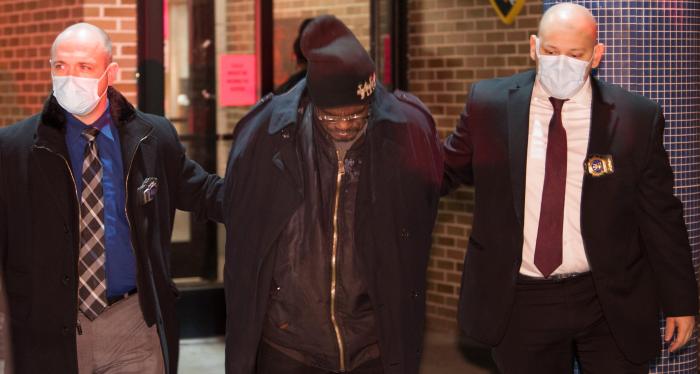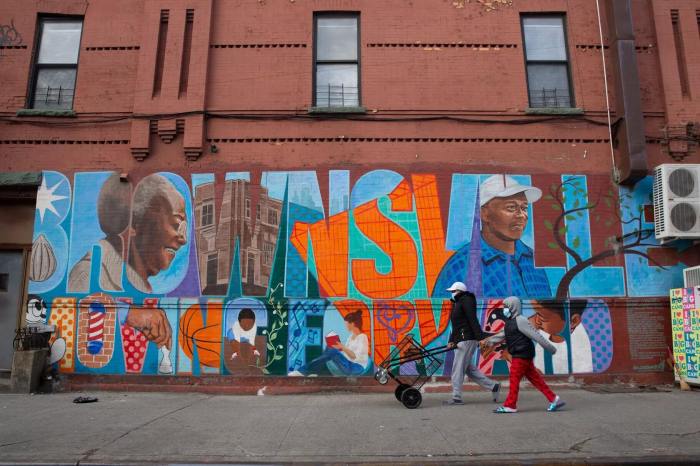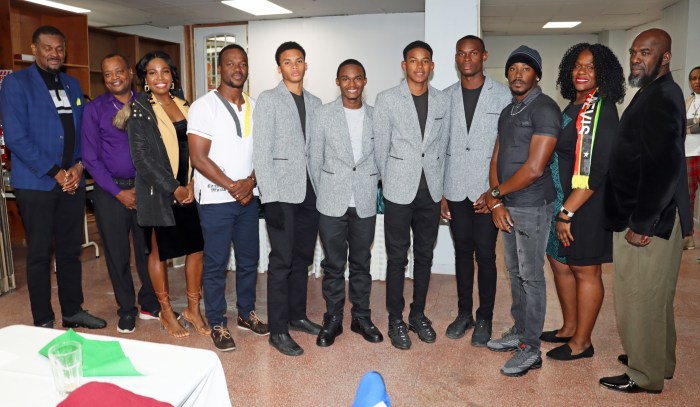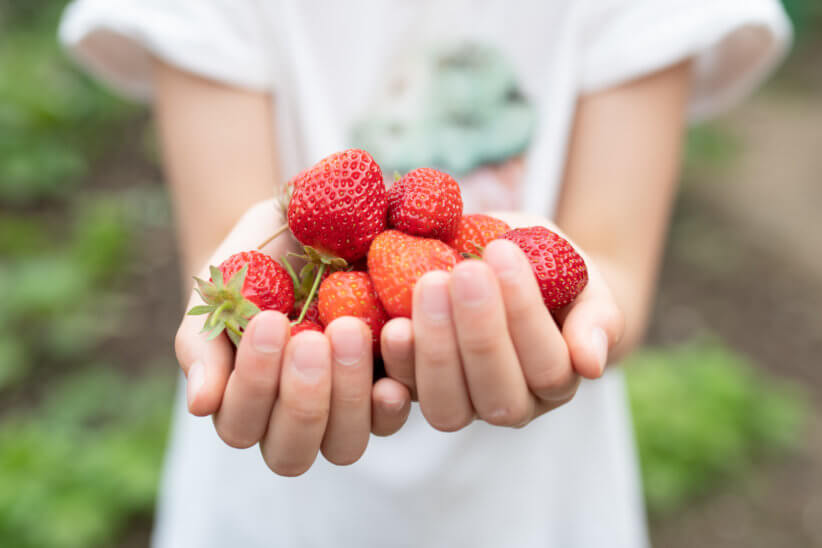Citing food inequity among the borough’s minority population, a local nonprofit has opened an urban farm in Brownsville to provide healthy food to the local community, which suffers from high rates of diseases resulting from poor diet.
The 5,000-square-foot harvesting lot, dubbed “The Eastern Parkway Farm,” marks The Campaign Against Hunger’s second urban farm in Brooklyn, and sits on its namesake parkway between Pitkin and Howard avenues
The Campaign Against Hunger (TCAH) also has a farm in Bedford-Stuyvesant, the Saratoga Urban Agro-Ecological Center, which opened in 2009, along with several other food-based initiatives around the city — like another farm in Queens, a food pantry in Bedford-Stuyvesant, a food distribution center at a Canarsie soundstage donated by the production company Broadway Stages during the pandemic, and a mobile farmer’s market called “Fresh Vibes” that travels across the city in a specially-designed truck carrying fresh produce.
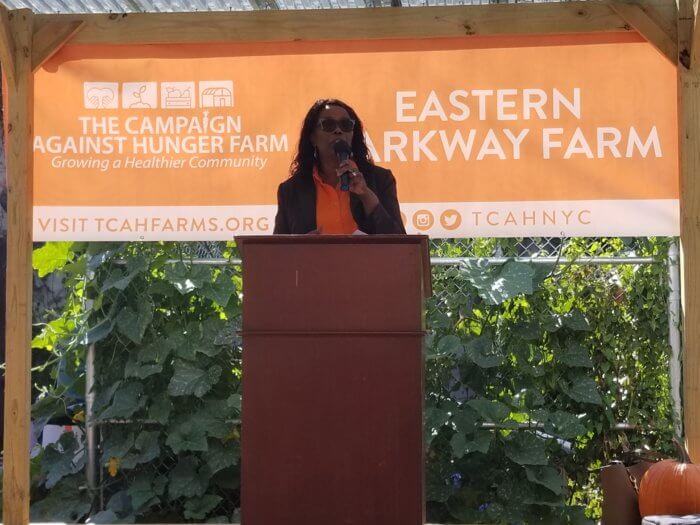
“People thought I had lost my mind,” said Melony Samuels, CEO and founder of TCAH, at the opening ceremony for Eastern Parkway Farm on Thursday. “They had said it’s not possible that individuals would want to barter or get rid of the canned food and the sweets and the sugar and the salt and everything else. And that’s what birthed the idea of farming, and we were the first organization to have from farm to table.”
All three of the areas where the nonprofit has farms are majority-Black, a reflection on the group’s goal to reduce inequities in access to healthy food that leave Black New Yorkers at higher risk of diseases like hypertension, diabetes, and obesity, and brought about by unhealthy eating.
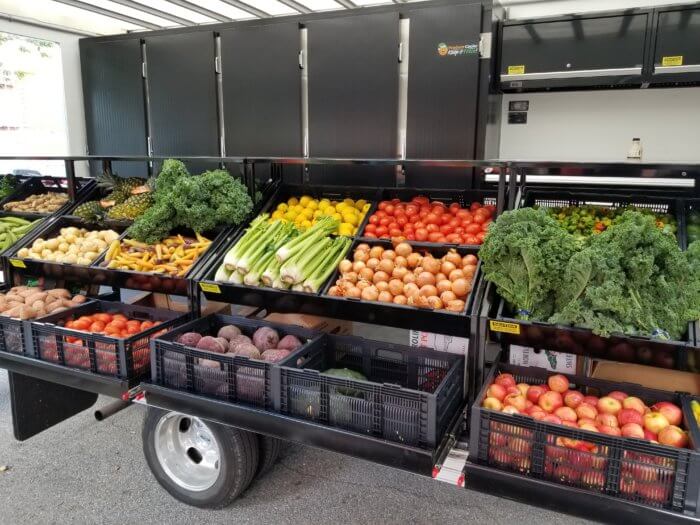
“Food justice is racial justice, is economic justice,” Assemblymember Diana Richardson said. “Our communities have been disenfranchised for so long. When we talk about social determinants of health, and all that is going on, we know that our community has been shortchanged for so long with access to healthy food. And it shows, it shows in everything that plagues us.”
TCAH says that it has provided 25 million meals worth of healthy food to New Yorkers facing food insecurity during the pandemic — six times their output in a normal year.
Unlike a community garden, which can be found all over the city (including the Brownsville Green Community Garden right next door) and usually involves a membership structure for individual plots, the farm will be owned and operated by TCAH, which will sell the produce directly to customers at inexpensive prices, which Samuels said can remain low because of the nonprofit’s reliance on philanthropy.
The group plans to hire locally, and to train neighborhood teens on agricultural practices as part of a 10-month workforce program. Beyond its status as a working farm, Samuels also wants Eastern Parkway Farm to be a space for local students to learn about environmental science. The farm will be open every day from 9 to 2, and experienced farmers will assist patrons in harvesting.
For 30 years, the land now occupied by the farm was vacant; just months ago, the land was a patch of tall grass surrounded by a chain-link fence. Samuels said that the Department of Housing Preservation and Development approached her this year and asked if she wanted to use the vacant land to “make a difference.” After four months of work by volunteers and staff, the land has seen a “transformation,” she said.
The land now features rows upon rows of fresh produce — with current offerings including various cabbages, kale, swiss chard, radishes, turnips, pumpkins, watermelons, and various other crops. There is also a sculpture of two massive hands, by the artist Jasmine Murrell and Eastern Parkway Farm worker Faith Pegus, which Pegus described as “ancestral hands holding up the future generations,” and which also supports the growth of crops, currently chia seeds.
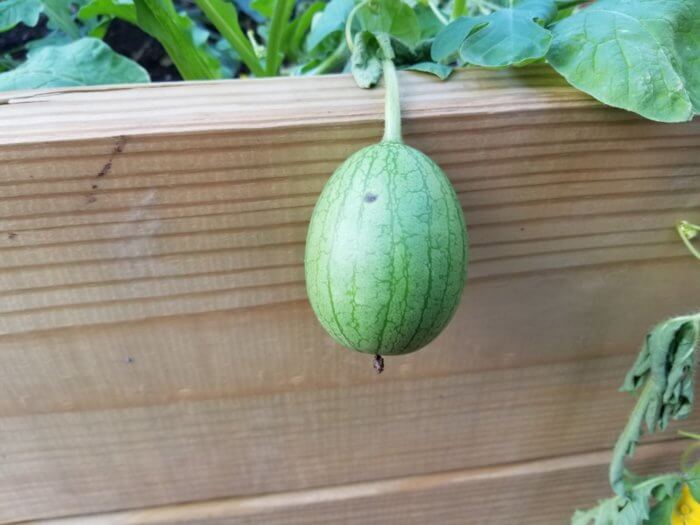
Samuels said that the farm was opened using only money from private donations, and solicited the lawmakers present at the opening for public funds to help support the group’s missions.
“We cannot do this without your voice,” Samuels said. “We cannot do this without your signatures, we cannot do this without your advocacy.”

TCAH has secured $9.6 million in funds from the City Council to purchase property in East New York for a food hub, Samuels told Brooklyn Paper, where the group will grow food using “aquaponics and hydroponics” to allow it to operate year-round, as well as distribute bulk food throughout the community. Down the road, she hopes to develop three acres at Floyd Bennett Field, where teens at the Launch EL Charter School, which is seeking to develop a “sustainable and antiracist school” on 85 acres at the former airfield, would run a farm.
Despite all that, as with any nonprofit, TCAH needs the dough to do its work, and Samuels hopes that it can scale up its work to feed the whole city. Legislators told Samuels that they intend to get her the money.
“She is doing so much with so little,” said Richardson, holding Samuels’ hand. “It is a shame. It is a shame. I am sick and tired, and it is our role, and we will continue to play that role, to cut the red tape for you. You deserve much more. And it is coming to you.”


